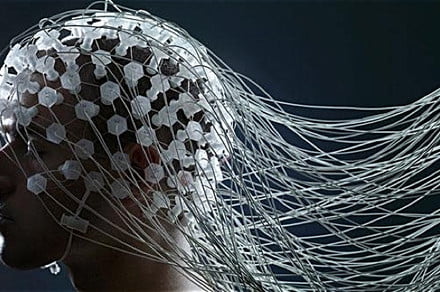A doctor who is prescribing antidepressants will largely rely on self-reporting on the part of patients to make their decision. Unfortunately, antidepressants don’t work on every patient. That’s bad news — especially when it comes to treating depressive episodes, which can have a profound impact on people’s lives. Could A.I. and brain-scanning tech help solve the problem?
That’s the ambitious goal of a new piece of research carried out by scientists from Stanford University. Researchers there have been investigating whether EEG brain scans could be used to more accurately predict who is likely to benefit from taking antidepressants.
“Over the past 10 years, as a field we have come to believe that antidepressants may not be effective drugs,” Amit Etkin, Associate Professor of Psychiatry and Behavioral Sciences, told Digital Trends. “On average, response to an antidepressant is only slightly better than placebo. An alternative explanation, however, is that our current diagnostic approach is too imprecise as it relies on subjective reports alone, with no objective biological testing available. As such, perhaps antidepressants work very well, but only for a portion of people — and our current diagnostic approach can’t discern this type of patient from those who will not respond to the antidepressant.”
The study used machine learning A.I. to analyze brainwaves in order to identify who does and does not respond to a particular antidepressant. The group used data from a large National Institutes of Health (NIH)-sponsored study called EMBARC, first started around a decade ago. EMBARC is the largest placebo-controlled antidepressant trial carried out with brain imaging.
Using their newly developed A.I. algorithm, the team tested out the approach on a group of 279 people. 76% of the study participants that the algorithm predicted would benefit from an antidepressant called sertraline did so. Normally the drug is effective in only around one-third of people. That’s still not perfect, but it’s significantly more accurate than the guesswork that would otherwise have seen people prescribed drugs that ultimately wouldn’t work for them. In the future, the team will gather a larger and more clinically diverse data set to help improve these predictive tools.
“This study helps turn a critical corner in psychiatry — away from trial-and-error treatment selection and toward a more individualized and precise approach,” Etkin said. “This is a much-needed change, as conditions like depression are very prevalent, associated with high morbidity and mortality, and tremendous healthcare and societal costs. The impact of translating these findings to the clinic could be huge on both personal and economic levels.”
A paper describing the work was recently published in the journal Nature Biotechnology.

